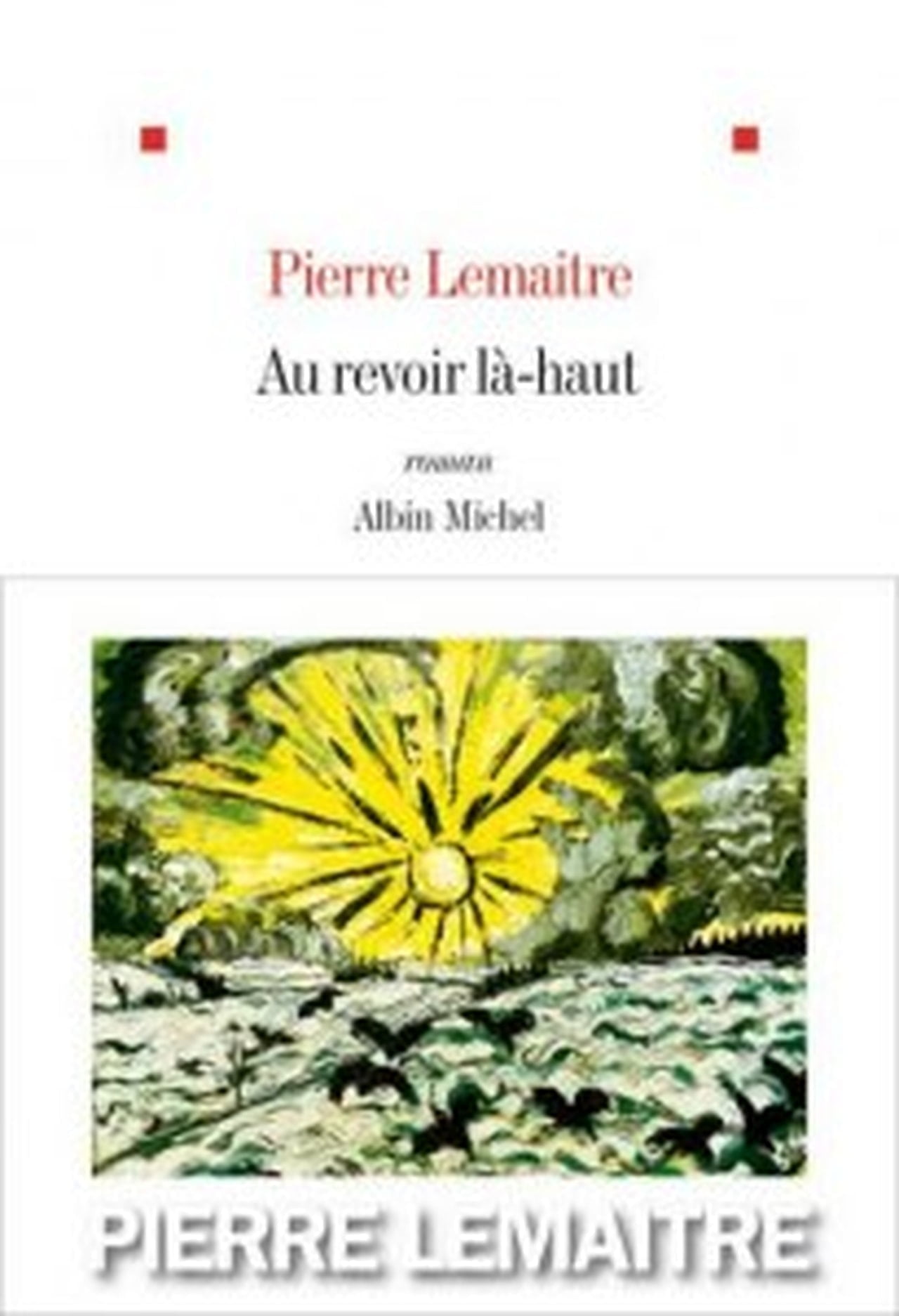The trailer for Au revoir là-haut, Albert Dupontel's latest comedy-drama scheduled for release on October 25, 2017, announced a promising film. One can without hesitation declare that the contract is fulfilled. In a context of the First World War and the post-war period, the director offers a majestic and moving story of friendship between two former French soldiers, Albert and Edouard, who decide to launch a vast scam selling war memorials.
A BOOK ON SCREEN
 Au revoir là-haut is none other than the adaptation of the eponymous novel by Pierre Lemaitre, awarded the Prix Goncourt in 2013. Albert Dupontel, recognized for the quality of his original screenplays, is directing for the first time a film adaptation and the least we can say is that it succeeds him. Pierre Lemaitre's book is an idyllic playground for the director, just as trenches are a horror ground for his characters. In terms of staging, the daily life of the poilus in the heart of the trenches and during the assaults is a real success that we owe in particular to a totally immersive sound environment. The historical fresco portrayed by Dupontel throughout the film is quite credible and has a pleasant touch of fantasy and elegance specific to the filmmaker. For those who had the opportunity to read the book, Dupontel, always with the consent of Pierre Lemaitre, allowed himself some deviations from the original story. If it is possible that purists cry scandal, it seems unlikely given the mastery and accuracy of the director's artistic choices. Au revoir là-haut, as the title suggests, is a film that takes height. The camera without stops at altitude regularly returns to place itself at the level of the characters as if to suggest the fragility of individuals in the face of events that are beyond them. This high-rise camera also makes it possible to take a distance, to look with a certain detachment at historical events to leave space for the humorous elements that characterize Dupontel's comedies so well.
Au revoir là-haut is none other than the adaptation of the eponymous novel by Pierre Lemaitre, awarded the Prix Goncourt in 2013. Albert Dupontel, recognized for the quality of his original screenplays, is directing for the first time a film adaptation and the least we can say is that it succeeds him. Pierre Lemaitre's book is an idyllic playground for the director, just as trenches are a horror ground for his characters. In terms of staging, the daily life of the poilus in the heart of the trenches and during the assaults is a real success that we owe in particular to a totally immersive sound environment. The historical fresco portrayed by Dupontel throughout the film is quite credible and has a pleasant touch of fantasy and elegance specific to the filmmaker. For those who had the opportunity to read the book, Dupontel, always with the consent of Pierre Lemaitre, allowed himself some deviations from the original story. If it is possible that purists cry scandal, it seems unlikely given the mastery and accuracy of the director's artistic choices. Au revoir là-haut, as the title suggests, is a film that takes height. The camera without stops at altitude regularly returns to place itself at the level of the characters as if to suggest the fragility of individuals in the face of events that are beyond them. This high-rise camera also makes it possible to take a distance, to look with a certain detachment at historical events to leave space for the humorous elements that characterize Dupontel's comedies so well.

BURLESQUE: CHAPLIN HONORED
 Albert Dupontel operates a real tour de force by making a comedy against the backdrop of the First World War and with a "broken mouth" as the main character. The dialogues of a fine and powerful humor are real breaths of oxygen in the middle of a tragic atmosphere marred by mutilation and death. Dupontel perfectly embodies the touching character of Albert, a former accountant who is both gentle and clumsy but also the bearer of a violence acquired in spite of himself on the front. With Au revoir là-haut, Dupontel once again declares his love for comedy and pays tribute to burlesque films, as well as to the famous figures who embody the genre. When Albert undertakes to invite the maid of the Péricourt family through the gate of the imposing residence, it is very clearly a reference to Chaplin's film City Lights that is made. Dressed in a canary yellow suit and hat, Albert's outfit is reminiscent of Buster Keaton's. If we laugh as much as we cry, the film is nonetheless sobering.
Albert Dupontel operates a real tour de force by making a comedy against the backdrop of the First World War and with a "broken mouth" as the main character. The dialogues of a fine and powerful humor are real breaths of oxygen in the middle of a tragic atmosphere marred by mutilation and death. Dupontel perfectly embodies the touching character of Albert, a former accountant who is both gentle and clumsy but also the bearer of a violence acquired in spite of himself on the front. With Au revoir là-haut, Dupontel once again declares his love for comedy and pays tribute to burlesque films, as well as to the famous figures who embody the genre. When Albert undertakes to invite the maid of the Péricourt family through the gate of the imposing residence, it is very clearly a reference to Chaplin's film City Lights that is made. Dressed in a canary yellow suit and hat, Albert's outfit is reminiscent of Buster Keaton's. If we laugh as much as we cry, the film is nonetheless sobering.
A CRITIQUE OF SOCIETY THROUGH DADAISM
Dupontel's film also draws a critique of society and more particularly of the big companies that make money on the misery and misfortune of poor people. This criticism already discussed many times draws its originality in a Dadaist visual treatment. Indeed, the condemnation of these powerful crushing the weakest is adorned with a rare elegance. Thanks to the character of Edouard and his conjuring side, the abuses of society are denounced with champagne corks, cream pie, festivities, masks and costumes. The most telling reference to Dadaism is the bidet-shaped mask that celebrates the work of Marcel Duchamp. We must salute the choice of Dupontel concerning the attribution of the role of Edouard with big blue eyes of Nahuel Pérez Biscayart, revelation of the film 120 beats per minute. The role requires an expressive pair of eyes as well as impeccable gestures to give life to this voiceless character whose large part of the face is constantly masked. A very nice challenge taken up brilliantly by Nahuel Pérez Biscayart.

Albert Dupontel's first film adaptation is a total success, as Au revoir là-haut is a complete film; moving, funny, critical and poetic at the same time. Particularly fond of comedies, Dupontel draws his references from the masters of burlesque such as Charlie Chaplin, to the delight of the spectators. This historical fresco is to be carefully stored on the library alongside The Officers' Room and A Long Sunday of Engagement.






































